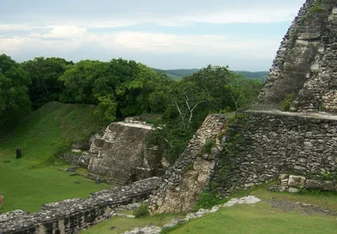Overall the trip was a good experience, if we include recreational and tourist time. Strictly speaking about the missionary work, I am extremely disappointed. It was my first time traveling alone outside of the country and everything went smoothly for me, I felt safe at all times. However, there were a few things which I cannot ignore. For being a 12 day mission trip we really only had 3 days worth of clinic, or hands on time with patients. This was extremely disappointing to me as I really hoped to go to communities in need and serve them with all of my knowledge and donations we were able to. More over, OUR GROUP LEADER WAS RELATED TO THE PEOPLE IN THE COMMUNITY IN WHICH WE SET UP OUR CLINIC, her father was our driver and he knew all of the people in the community. I asked one patient that came to our clinic what had brought her in- if she was having any pain, etc, she said no, she knew our group leaders father and he told her to come in. I felt lied to, like this was all a show, a set up for us, like none of it was real and I wasn't making a real impact in this community. I was so disappointed. At that point I realized there are some many other people in the world who have no access to care, and who could have better benefited from my time, efforts and especially money, rather than our group leader's fathers family putting on some sort of show for us. Granted it wasn't all of his family members coming into the clinic, but how suspicious, how can something like this be allowed? Also, the next few days we were scheduled to go to a local hospital is Maras. When we got there the doctor explained to our group leader it was the beginning of the month and they don't see patients, they only do paper work. The day before I saw our group leader make a phone call to this doctor to give him the heads up we were coming to the hospital, so there was no planning done in advanced. So after we got to the hospital with nothing to do, we ended up folding gauze for the nurses for the next few hours. At one point I thought to myself, did I really just travel all the way to Peru to fold gauze? What good is this possibly doing? So the next day they (our group leader translated from the doctor) promised we would be able to see patients, make house calls with the doctor, do injections, etc. Turns out September 2nd is "nurses day" in Peru, so there were no patients again. I really feel like this should have been planned out ahead of time. This could have been avoided, it was two whole days wasted, traveling two hours to this hospital and back, when we could have been doing more good in the community we set the clinic up in. Perhaps if our group leader called further ahead than one day we could have swapped the hospital and community clinic days and avoided this all together. Overall 12 days was WAY too long, being that we only saw patients three days. Something else that happened was, our Peru country organizer did not tell us there was limits on the luggage when traveling from Lima to Cusco. We had to transport our personal items as well as the donations we brought and the donations ISL made us transport. My fellow team members and I ended up having an extra bag due to donations and we had to pay this out of pocket. This too could have been avoided with communication. No where in the itinerary did it state needing to take Peruvian airlines or their luggage restrictions of one bag, especially if someone was coming from a flight where they could have two bags. I really wish I could have had a more profound affect on the surrounding communities, but I am leaving that to no fault of my own. I am grateful that I was exposed to the conditions and the healthcare system of Peru, it ignited my desire to become the best healthcare provider possible so that one day I can return to communities like the ones I saw in Peru and better treat them without the constraints and strings of ISL.
















Response from International Service Learning
We're so glad you had such a rewarding experience with us, Kaitlyn! Thanks for sharing!